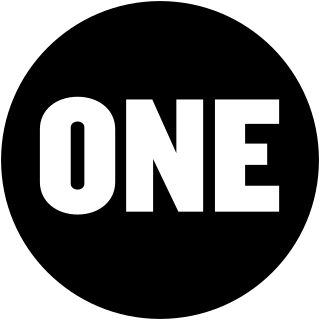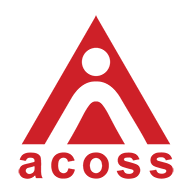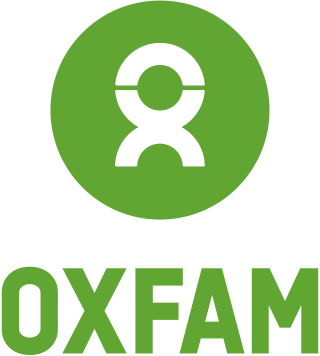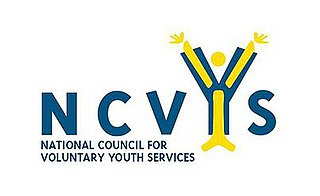Related Research Articles
The voluntary sector, independent sector, or civic sector is the realm of social activity undertaken by organizations that are non-governmental nonprofit organizations. This sector is also called the third sector, community sector, and nonprofit sector, in contrast to the public sector and the private sector. Civic sector or social sector are other terms for the sector, emphasizing its relationship to civil society. Richard Cornuelle coined the term "independent sector" and was one of the first scholars to point out the vast impact and unique mechanisms of this sector. Given the diversity of organizations that comprise the sector, Peter Frumkin prefers "non-profit and voluntary sector".

Christian Aid is the relief and development agency of 41 Christian churches in the UK and Ireland, and works to support sustainable development, eradicate poverty, support civil society and provide disaster relief in South America, the Caribbean, Africa and Asia.
Make Poverty History were organizations in a number of countries, which focused on issues relating to 8th Millennium Development Goal such as aid, trade and justice. They generally formed a coalition of aid and development agencies which worked together to raise awareness of global poverty and achieve policy change by governments. The movement has existed in Australia, Canada, Denmark, Finland, New Zealand, Nigeria, Norway, Romania, South Africa, Ireland, the United Arab Emirates, the United States of America, and the United Kingdom. The various national campaigns were part of the international Global Call to Action Against Poverty campaign.

ONE Campaign is an international, non-partisan, non-profit advocacy and campaigning organization that fights extreme poverty and preventable disease, particularly in Africa, by raising public awareness and pressuring political leaders to support policies and programs that save lives and improve futures.
Action on Smoking and Health (ASH) is the name of a number of autonomous pressure groups (charities) in the anglosphere that seek to publicize the risks associated with tobacco smoking and campaign for greater restrictions on use and on cigarette and tobacco sales.

The Australian Council of Social Service (ACOSS) is an Australian organisation that advocates for action to reduce poverty and inequality, and is the peak body for the community services sector in Australia. It was formed in 1956.

The Global Call to Action Against Poverty (GCAP) is a network of over 11,000 civil society organizations (CSOs) organized in about 58 national groups. It supports people in their struggles for justice and brings individuals and organizations together to challenge the institutions and processes that perpetuate poverty and inequalities.

The British Youth Council, known informally as BYC, is a UK charity that works to empower young people and promote their interests. The national charity, run by young people, exists to represent the views of young people to government and decision-makers at a local, national, European and international level; and to promote the increased participation of young people in society and public life. It is partly funded by the Department for Digital, Culture, Media and Sport and UK Parliament.

Stephen Hale OBE is the Chief Architect of Climate Catalyst, a new organisation established in March 2021 to accelerate action on climate change through building diverse coalitions of businesses, investors, civil society groups and other champions of climate action to influence national governments.
Make Poverty History-Emirates (MPHE-/MPH-Emirates) was an open coalition of UAE based organizations that worked together to eradicate global poverty and assist in the achievement of the Millennium Development Goals (MDG's) from 2005 until 2009.

Oxfam is a British-founded confederation of 21 independent non-governmental organizations NGOs, focusing on the alleviation of global poverty, founded in 1995 and led by Oxfam International. It began as the Oxford Committee for Famine Relief in Oxford, UK, in 1942, to alleviate World War Two related hunger and continued in the aftermath of the war. By 1970, Oxfam had established an international presence, in India, Australia, Denmark, and North America.

The Muslim Charities Forum (MCF) is an umbrella organisation for UK based Muslim-led charities whose primary goal is to provide humanitarian aid and assistance to the poorest and most vulnerable people around the world. It is also an associate member of British Overseas NGOs for Development (Bond), the UK membership body for non-government organisations and a member of National Council for Voluntary Organisations (NCVO), an organisation with 11,000 members that champions the voluntary sector and volunteering.
Eilidh Whiteford is a Scottish National Party (SNP) politician who served as the Member of Parliament for Banff and Buchan from 2010–17.
The Big Society was a sociopolitical concept of the first 15 years of the 21st century, developed by the populist Steve Hilton, that sought to integrate free market economics with a conservative paternalist conception of the social contract that was influenced by the 1990s civic conservatism of David Willetts. The Big Society influenced the 2010 UK Conservative Party general election manifesto and the legislative programme of the Conservative–Liberal Democrat coalition agreement. The relevant policy areas were devolved in Northern Ireland, in Scotland and in Wales, to, respectively, the Northern Ireland Executive, the Scottish Government and the Welsh Government.
Divya Dhar is a medical doctor from New Zealand. In 2010 she received the Young New Zealander of the Year Award.

The National Council for Voluntary Youth Services (NCVYS) was a membership network of over 200 voluntary and community organisations, as well as local and regional networks, that work with and for young people across England. The organisation closed in 2016. For 80 years, NCVYS acted as an independent voice of the voluntary and community youth sector, working to inform and influence public policy, supporting members to improve the quality of their work, and also raising the profile of the voluntary and community sector's work with young people.
The Family and Parenting Institute is an independent charity that exists to make the UK a better place for families and children. It works with charities, businesses, and public services to offer practical help to families. Its campaigns and research work focus on building a "family friendly" society by offering insights into current and future family life. It runs the Family Friendly scheme, which aims to help public and private organisations to better understand diverse families and meet their needs. The Family and Parenting Institute merged with the Daycare Trust in January 2013 and is now called the Family and Childcare Trust.

The United Kingdom government austerity programme is a fiscal policy that was adopted for a period in the early 21st century following the Great Recession. The term was used by the Coalition and Conservative governments in office from 2010 to 2019, and again during the 2021–present cost of living crisis. The two periods are separated by a stint of interventionist, Keynesian spending during the COVID-19 pandemic.
Meri Toksave is a youth-led, non-profit, non-governmental organisation that designs and delivers programmes and partnerships for the promotion and protection of human rights, the empowerment of women and girls, the advancement of gender equality, and the prevention and elimination of domestic, sexual and gender-based violence in Papua New Guinea.
Cecil Jackson-Cole (1901-1979) was an English entrepreneur and humanitarian. He was associated with a number of charities including Oxfam, Help the Aged and ActionAid.
References
- ↑ "End Child Poverty, registered charity no. 1099008". Charity Commission for England and Wales.
- ↑ "Hosting arrangements". End Child Poverty. Archived from the original on 22 May 2013. Retrieved 22 June 2013.
- ↑ "End Child Poverty coalition members". Archived from the original on 31 July 2009. Retrieved 14 August 2009.